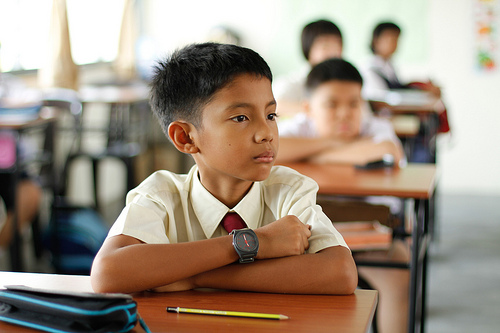This month, around 120 teachers and administrators from 110 schools participated in a co-teaching training program designed to encourage cooperation between native and non-native English teachers.
 Run by the state Education Department and Brighten Education Group (BEG), the program exposes educators to the principles, techniques, and best practices for implementing appropriate co-teaching programs at their own schools.
Run by the state Education Department and Brighten Education Group (BEG), the program exposes educators to the principles, techniques, and best practices for implementing appropriate co-teaching programs at their own schools.
“Through this programme, a local teacher will work with an English native-speaker in the classroom, allowing them to speak more English and learn to conduct a pro-active class environment. When local teachers are able to do this, students are encouraged to participate in class and gain self-confidence,” stated State Education Department English Language assistant director R. Chandrakala.
Other advantages, he added, include enhancing student’s world knowledge. “The programme provides a great opportunity for students in rural areas to experience cultural diversity when they learn the subject from native speakers.”
Co-teaching approaches are rapidly gaining popularity among local teachers. Armayani Abd Razak, a teacher from SK Telok Sentang in Temroloh, felt encouraged by the opportunity to share his ideas and experiences with another teacher, stating, “We then get to improve our approach and come up with new ideas on how to better engage students in English classes.”
Another educator, V. Balasubramaniam, said that his students had shown more interest in taking English classes since the program was implemented at his school in 2011.
As with any educational practice, co-teaching can be successful if developed in a school that embraces inclusive learning models, where teachers have the freedom and time to develop their roles, prepare evaluative tools, and adapt to changes in progress.
Creative Commons Love: Lan Rasso on Flickr.com





















